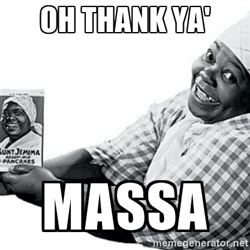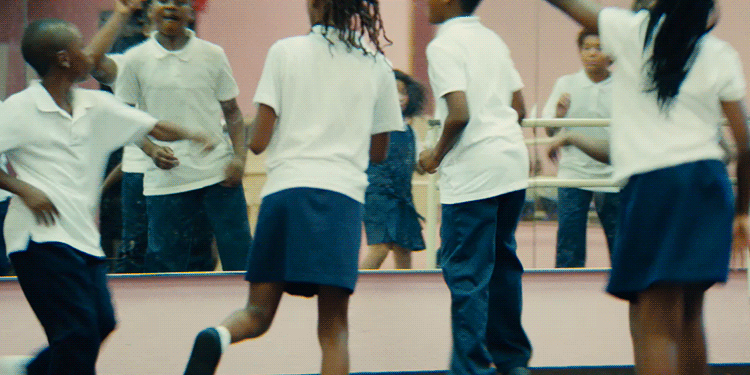We’re counting down the days until the screening of Moonlight at the Ritzy on Thursday 9th February at 9pm and the Moonlight Celebration Event on the 12 February at 7.30pm at the Upstairs at Ritzy. We hope to see you at both these BlackOut Launch events!
I’ve been lucky to attend a screening of the Moonlight in an intimate space; a small wooden panelled theatre in a private member’s club. Check me out! Along with the brilliance of the film and the opulence of the location; something else struck me which I had to convey to the organiser in an email in response to her request that I share my thoughts about the film. I’ll call her Becky to protect her identity. She was friendly, young, blond and enthusiastic about promoting the film! Still I thought it was important to register with Becky a level of disappointment with the completely white audience. I wrote:
Dear Becky,
It was so nice to see the film in such a lovely space. Simply put Moonlight is astonishing! It disrupts the stereotypical narrative about Black men and offers a complex examination of not just Black masculinity but masculinity more broadly. Beautiful in dialogue as is the cinematography and the latter so powerful in capturing the range of color between black brown and blue. As a Black gay American man, it was like going to therapy! The other Black gay man (British) who came with me was equally moved and likened the experience to listening to good soulful music! As you described it being a Press Event and those invited would be writing about Moonlight in various prominent publications; I did feel a measure of sadness more people like me and my mate were not in the audience. Not meant to be a criticism but rather an observation and certainly not meant to undermine the kindness of your invitation.
In Attitude, ‘The UK’s best selling gay magazine’, I read an extensive review of Moonlight by Matthew Todd, the magazine’s Editor-at-Large, where he did well to present the voices of both the director and the author of the original story In Moonlight Black Boys Look Blue. Their quotes shaped much of Todd’s article. Still, his overarching summary didn’t describe my feelings about what I saw. Perhaps I’m biased as a Black gay man with an assumption (perhaps arrogant) of greater validity in my own critique of Moonlight. Also I admit I harbour a mild frustration in the way Todd claimed the story as his own; one defined by typical sadness and outrage with the homophobia and drug addiction themes. Dealing with a crack addicted mother and the broader community context is not really comparable to mephedrone fuelled sex parties. Yet in promoting and identifying themes in his own recent book, Todd alluded to this comparison. Todd also took an opportunity to identify and praise the role of Brad Pitt and his Plan B Production company  in producing both Moonlight and 12 years a Slave. Yessa, we mighty grateful fo dat. Typically Todd asked Terell McCraney about homophobia in Black communities. McCraney gave a brilliant and measured response and even though Todd printed it; I wondered if he recognised the question to be uninteresting and limited? Obviously Todd should write whatever he wants but I’m just not sure what value his words have for me. His review missed some of the most essential and beautiful elements of Moonlight and particularly those when it presents images not often seen in mainstream films; Black youthful innocence and Black male emotional vulnerability.
in producing both Moonlight and 12 years a Slave. Yessa, we mighty grateful fo dat. Typically Todd asked Terell McCraney about homophobia in Black communities. McCraney gave a brilliant and measured response and even though Todd printed it; I wondered if he recognised the question to be uninteresting and limited? Obviously Todd should write whatever he wants but I’m just not sure what value his words have for me. His review missed some of the most essential and beautiful elements of Moonlight and particularly those when it presents images not often seen in mainstream films; Black youthful innocence and Black male emotional vulnerability.

Both in America and in the UK (dare I say throughout the Westernized world) Black men are not seen as emotionally vulnerable and Black boys are not allowed to be children for very long before they enter the stereotypical public consciousness as menacing and threatening. This brief period of recognised Black male innocence is cut even shorter if you happen to grow tall for your age. This seminal feature of the film; the depiction of Black children at play; was particularly powerful. While Moonlight is a gay film (yes); a love story (possibly); Moonlight is very much a story of self-truth, friendship and intimacy forged in childhood between two Black men; themes rarely seen in mainstream films. And throughout the film, the silences are as powerful as the dialogue; vulnerability captured in the eyes and subtle movements of Black men! In his review Todd didn’t (and possibly couldn’t) speak of any of this. The title alone of Steven Thrasher’s review of Moonlight speaks more to me than all the words written by Todd and not just because I am Black gay and American. When I read film and cultural reviews and other kinds of critical articles written by people of colour and particularly those written by Black gay men, I have a different experience. Words I read take on a different meaning when I believe the writer possesses a meaningful awareness of my perspective. Is this true for you?



Leave a Reply